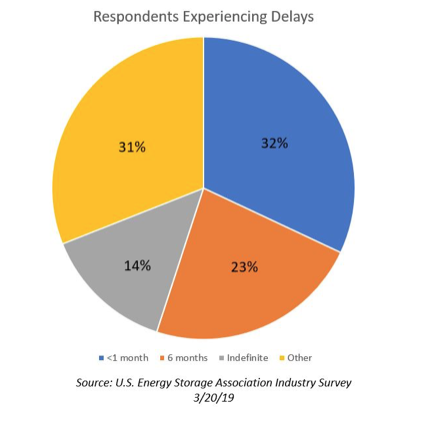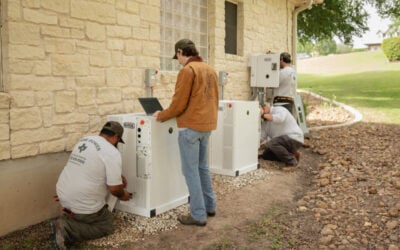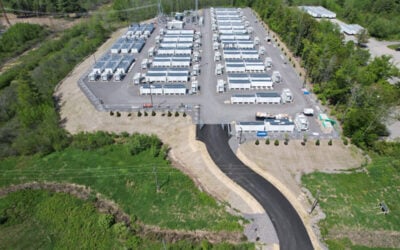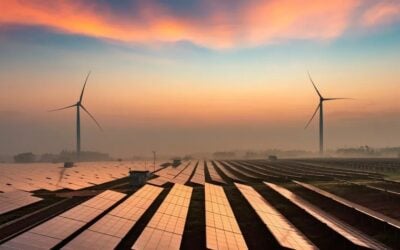The energy storage industry in the US is experiencing delays and could be staring in the face of potential job losses, according to a poll conducted by the national Energy Storage Association (ESA).
“The COVID-19 virus has placed unprecedented stress on the physical and economic health of communities around the world, and in just a few short weeks has upended our daily personal and work lives for an undetermined period ahead. For individuals working in the energy storage industry, the story is no different,” a statement sent out yesterday from the ESA read.
The association had sent out a short survey last Wednesday, 18 March finding out from 175 respondents that “the impact has been immediate and potentially devastating to our industry”.
Almost two-thirds (62%) of respondents are “already experiencing delays in project development,” while an actual two-thirds (66%) expect to “incur delays soon”.
Try Premium for just $1
- Full premium access for the first month at only $1
- Converts to an annual rate after 30 days unless cancelled
- Cancel anytime during the trial period
Premium Benefits
- Expert industry analysis and interviews
- Digital access to PV Tech Power journal
- Exclusive event discounts
Or get the full Premium subscription right away
Or continue reading this article for free
Of that latter figure, 44% are experiencing short-term impacts (defined as a month’s worth of delays) already, while more than a third (37%) anticipate six months or more of delays in project deployment.

What can be done?
The ESA highlighted the benefits that energy storage brings, including increasing grid efficiency and lowering the cost of power supply, adding longevity to existing grid infrastructure, allowing for more clean energy resources to be added and enabling backup for when blackouts occur. This is added to the employment of some 60,000 people across the US and around US$1 billion a year of economic activity that energy storage accounts for.
As Energy-Storage.news heard in a recent interview with Danny Lu, executive vice president at US energy storage system maker Powin Energy, some of the delays can be attributed to interruptions in the supply chain, including components coming from overseas.
ESA also said that closer to home, travel restrictions are making site visits more difficult, customer contact is obviously hampered and the closure of some government permitting agencies are all factors too.
The association recommended the following near-term options for providing economic stimulus. Some of these were included in a letter to Congress that the ESA signed along with the Solar Energy Industries’ Association (SEIA) and four other clean energy industry groups. They are:
1. To modify the investment tax credits (ITC) system to “allow businesses to monetise them directly, including for energy storage technologies”.
2. Grant exemptions from the Section 301 tariffs on imports including energy storage projects and components.
3. Providing grants for energy storage and other distributed energy resources, due to the cost-saving and efficiency-increasing benefits they can confer to the grid and ultimately the US ratepayer.
4. Incorporate energy storage into state, local government and community funds that are relevant, while also expanding those funds. These include making energy storage an eligible energy efficiency technology under Department of Energy (DoE) programmes, making energy storage a component of electric vehicle and charging system grants that could be created, and making energy storage an eligible investment for programmes run by the Department of Agriculture.
The above measures could have the strongest immediate impact, the ESA statement said.
“The time is now to enact low cost, common-sense provisions that can have immediate effect in helping America shore up resilience to meet the COVID-19 and other threats ahead”.
ESA asked companies to email the following address to share further experiences of impacts from the novel coronavirus: [email protected]





